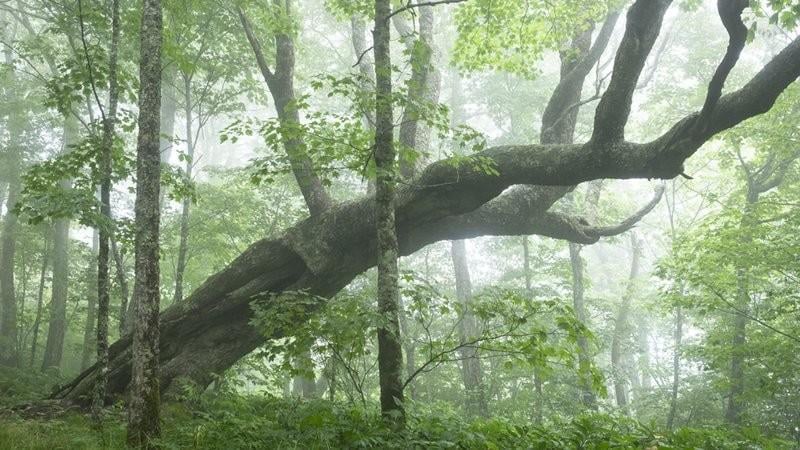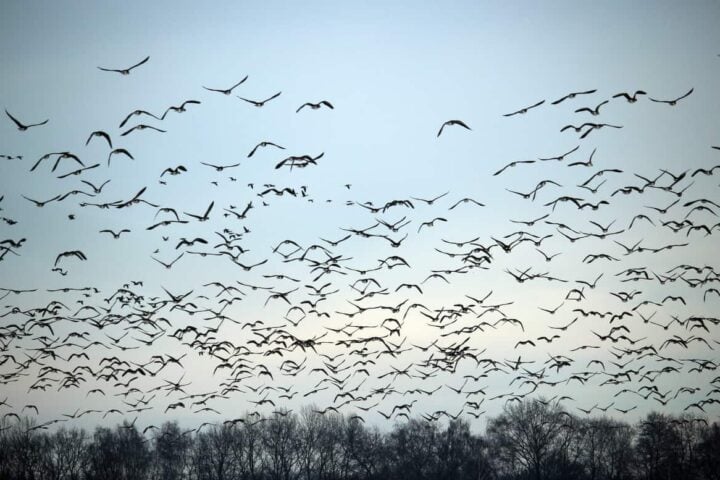Environmental groups are taking the U.S. Forest Service to court over a controversial logging plan for two of North Carolina’s most treasured public lands. The lawsuit, filed on March 27, 2025, challenges the Forest Service’s revised management plan for the Nantahala and Pisgah National Forests, which the groups say would dramatically increase logging while threatening wildlife habitats and water quality.
The Center for Biological Diversity, Sierra Club, Defenders of Wildlife, and MountainTrue filed the lawsuit in the U.S. District Court for the Western District of North Carolina. They claim the federal agency’s plan violates environmental laws and ignores widespread public opposition.
“This disastrous plan broke the law and the hearts of millions of forest visitors,” said Will Harlan, southeast director at the Center for Biological Diversity. “The most popular and biodiverse national forest in the country should not be targeted for massive increases in clearcuts, especially after Helene.”
The Disputed Forest Plan
At the center of the dispute is the Forest Service’s plan to increase timber harvesting in these forests by five times current levels. Environmental groups say the plan fails to protect sensitive ecosystems, old-growth forests, and endangered species habitats.
The lawsuit argues that the Forest Service rejected a collaboratively developed alternative that would have allowed some logging while minimizing environmental harm. Instead, they opted for a plan that expands logging and road building into sensitive habitats.
Sam Evans, leader of the Southern Environmental Law Center’s national forests and parks program, explained: “Ever since the Forest Service published the Nantahala-Pisgah forest plan, we have given the agency every possible opportunity to do the right thing and fix this flawed plan. But the Forest Service has refused.”
Similar Posts
Hurricane Helene Complicates the Issue
The environmental organizations point to Hurricane Helene’s recent destruction as further reason to reconsider the logging plan. The powerful storm knocked down tens of thousands of acres of national forest in western North Carolina.
Josh Kelly, resilient forests director for MountainTrue, noted: “The Forest Service’s final plan for the Nantahala-Pisgah was a major step backward. It opened up old-growth forests, rare species habitat, and remote backcountry to commercial logging while failing to address critical needs like road maintenance, trail infrastructure and monitoring.”
The groups argue that the plan was based on faulty assumptions about natural disturbances that Helene proved wrong. According to Ben Prater of Defenders of Wildlife, “This plan was built on the assumption that natural disturbances would create less than 200 acres of open and young forest habitat a year. By that metric, Helene caused 400 years’ worth of disturbance to some of the most important habitats in the region in a matter of days.”

Public Opposition
The forest plan has faced significant public resistance. Over 23,000 people have submitted comments opposing the plan, making it one of the most contested forest management plans in recent years.
Critics worry the increased logging will harm local economies that depend on recreation and tourism, degrade important ecosystems, threaten rare species, and make forests less resilient to climate change.
David Reid, National Forests Issue Chair for the Sierra Club’s North Carolina Chapter, emphasized the urgency: “Our national forests are reeling from massive storm destruction, yet they’re still subject to a management plan that includes unrealistic timber targets. We can’t wait any longer for the U.S. Forest Service to take the initiative to correct its plan.”
The lawsuit now puts the future of these beloved public lands in the hands of the federal court system, with significant implications for how national forests are managed in an era of increasing climate impacts.












![Representative Image: European Starling [49/366]. Photo Source: Tim Sackton (CC BY-SA 2.0)](https://www.karmactive.com/wp-content/uploads/2025/04/Starlings-Drop-82-in-UK-Gardens-as-Birdwatch-2025-Reveals-Record-Low-Count-Since-1979-720x480.jpg)





